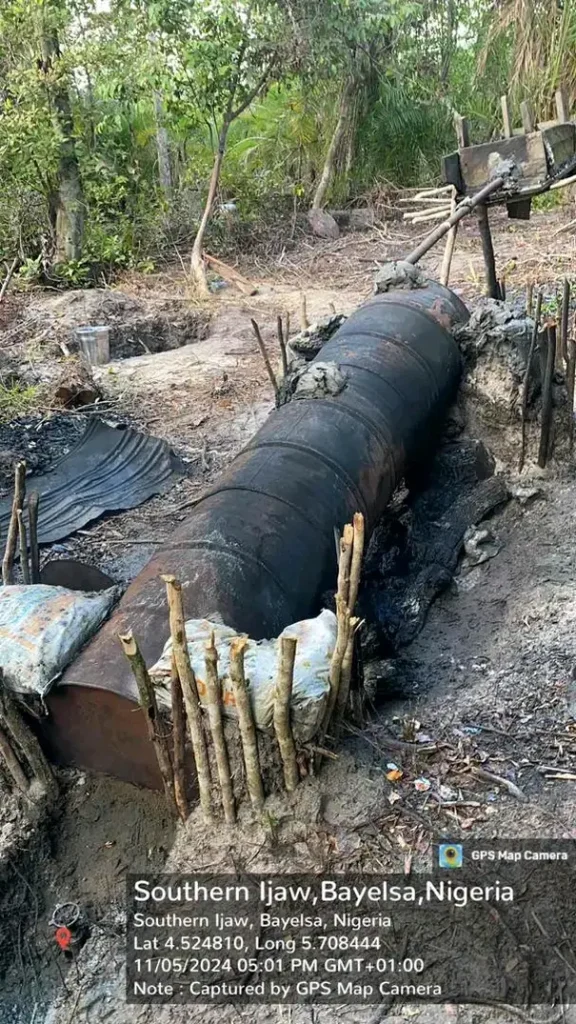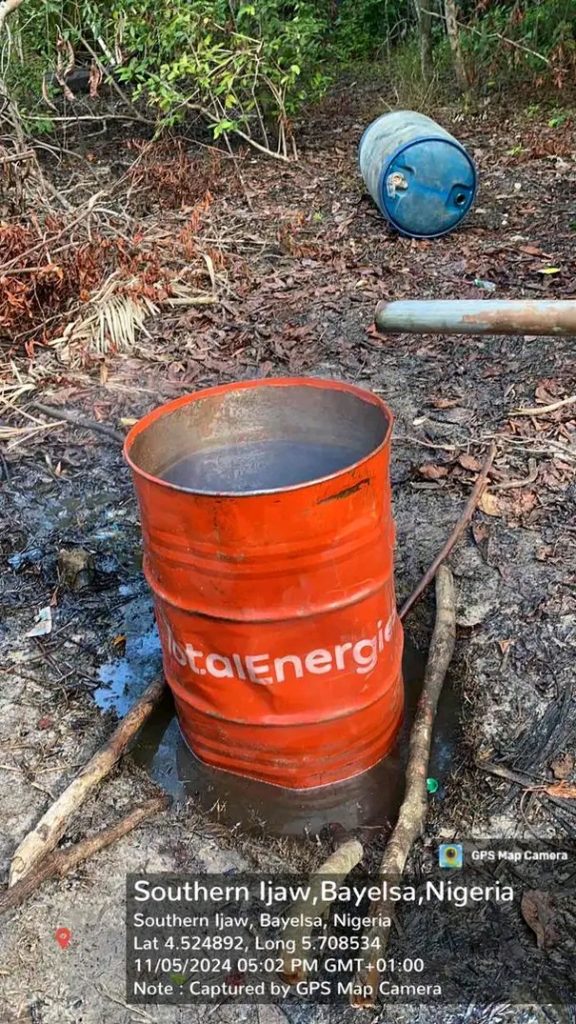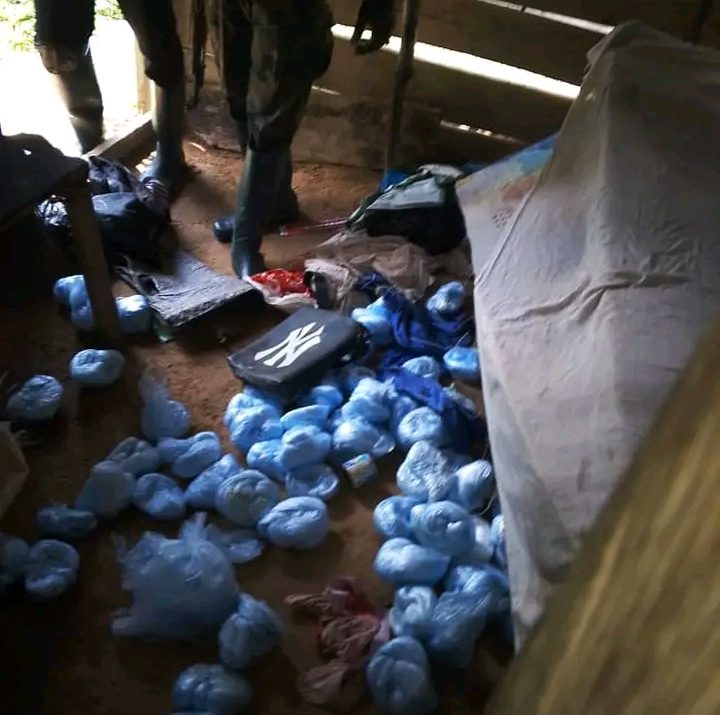In a decisive move to curb oil theft, the Nigerian Navy, through its ongoing Operation DELTA SANITY, has dismantled a notorious hideout used by crude oil thieves in Bayelsa State’s Oboloba community. In a series of coordinated actions on November 5, 2024, personnel from Nigerian Navy Ship (NNS) SOROH located and neutralized the illegal structure, disrupting the activities of oil criminals that have long plagued the region.

The operation, detailed in a statement on the Nigerian Navy’s verified social media page, marked a critical step in addressing illicit oil refining and its impact on Nigeria’s economy. Beyond the initial discovery, the navy’s patrol team detected and destroyed an illegal refining site at Foropa, a known hotspot for illegal petroleum processing, where a significant quantity of refined kerosene was confiscated. This aggressive intervention underscores the Nigerian Navy’s commitment to dismantling organized networks engaged in oil theft and refining.

The campaign intensified on November 8, when NNS SOROH, in collaboration with Forward Operating Base FORMOSO, apprehended two suspects in Igbomotoru. The suspects were caught with two wooden boats loaded with sacks containing illegally refined Automotive Gas Oil (AGO), reinforcing the navy’s commitment to zero tolerance against illegal oil activities.
In another successful interception, a large wooden boat filled with stolen crude oil was impounded on the Tubu-Bolo River. This seizure reflects a broader crackdown on waterways known to harbor oil theft operations, where criminals often transport stolen oil through isolated riverine routes.
These recent actions have garnered positive responses from the public and experts alike, who view the navy’s operations as pivotal in reclaiming control over Nigeria’s valuable crude oil resources. The Nigerian Navy remains resolute in its pursuit, assuring the public of its ongoing efforts to eradicate illegal oil activities through systematic patrols, monitoring, and quick-response teams.






